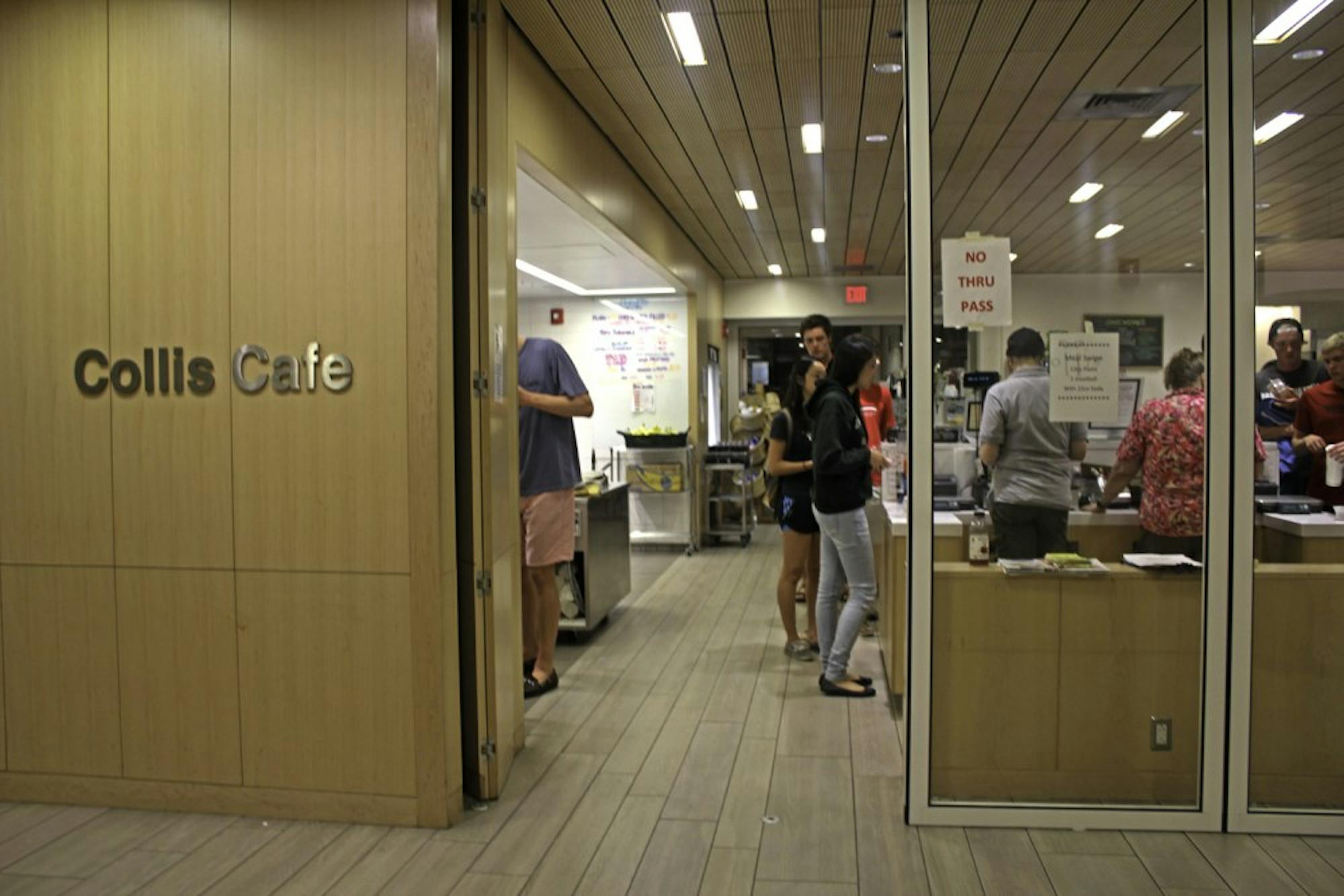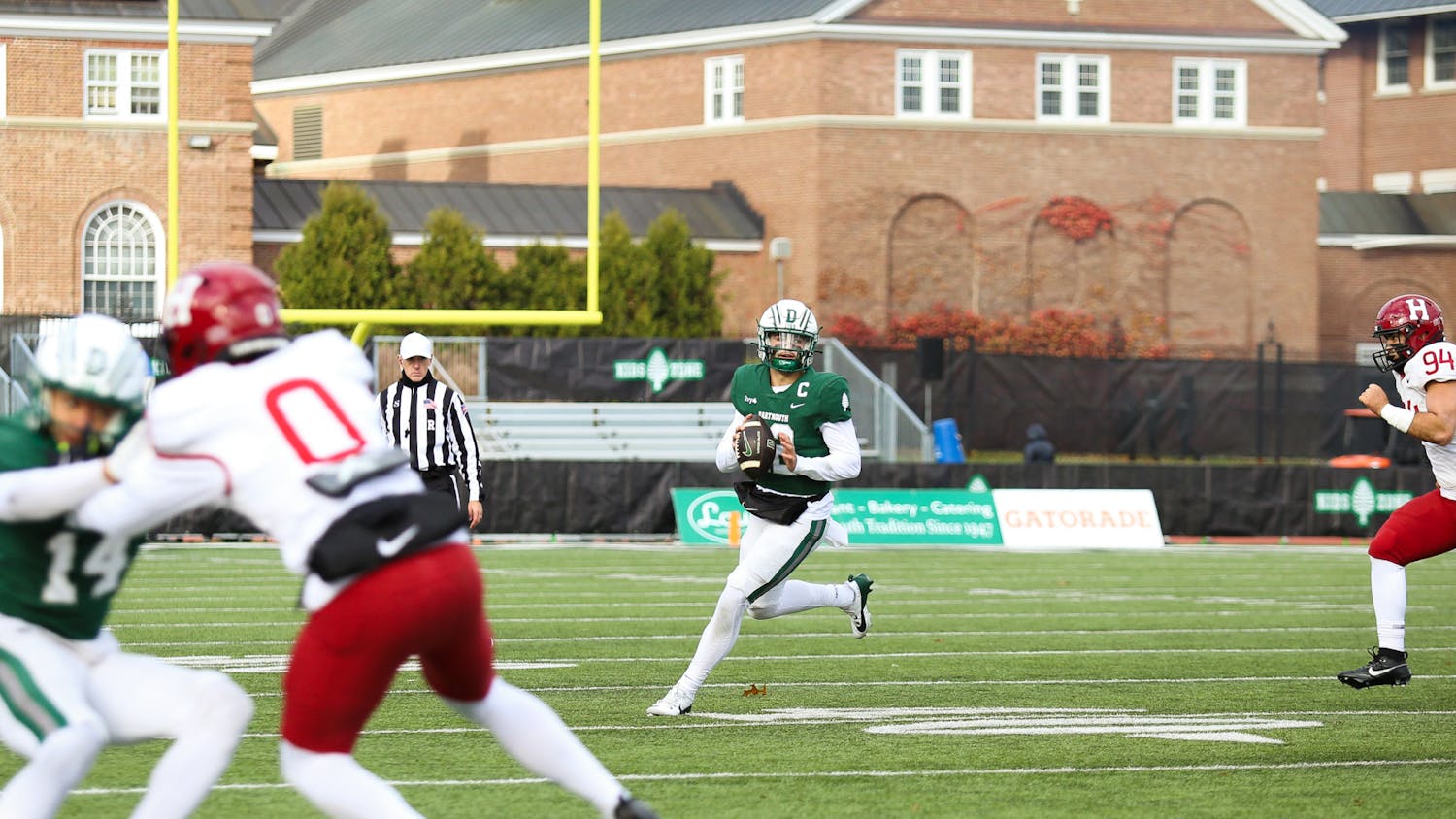Last week, late-night visitors to the Collis Café found the rear entrance to the venue roped off, its glass doors shut — new measures to prevent food theft.
The change comes in response to increasing rates of theft, Dartmouth Dining Services director David Newlove said.
He said thefts are particularly common Wednesday, Friday and Saturday nights.
“I can’t seem to explain it, but there seems to be a correlation between bad behavior and alcohol and drug use,” he said.
Monitoring student behavior had become too difficult for the staff, Newlove said, so the doors were closed to provide a “choke point.” With the doors closed, students may only enter or exit from the space behind the cash registers.
The decision to close the doors may be reversed if student behavior changes, Newlove said.
Other precautions DDS has taken to prevent theft include installing cameras at the Class of 1953 Commons, Novack Café and the Courtyard Café, Newlove said. A manager at the Hop now monitors student lines during late night hours, he added.
Students usually take items that are shelved far from the view of the cashiers, Newlove said, but may be bold enough to steal other items.
“They take milk and juices, even whole entrees if they have their way,” Newlove said. “Anything students consume, they might walk out with it.”
Employees catch around 60 students a day attempting to steal food across all DDS venues, he said, adding that this number likely represents only 10 percent of total theft.
Of 18 students surveyed informally by The Dartmouth, 11 said that they had stolen from a DDS venue, with ’53 Commons being the most common. All but one said they knew someone who stole an item from a DDS establishment.
DDS does not track the amount in dollars lost to theft, Newlove said, but noted that the losses often show up in the overall costs of the organization, leading the company to raise prices.
“It’s a substantial sum of money that honest people are paying for,” Newlove said.
Bad behavior in dining halls is not limited to theft, Newlove noted. During big weekends, Safety and Security monitors ’53 Commons to prevent crime.
“We’ve had students urinate in the middle of the dining room, lewd behavior in the restrooms and fights,” Newlove said.
He added that student employees at Novack Café have also experienced abuse from intoxicated students, leading to early closing times on some nights.
Newlove said administrators alone cannot thwart misbehavior and that students must get involved to prevent theft.
“Some of the students who see this behavior can stop this,” Newlove said. “They can say, ‘You just ate three containers of tater tots. Why aren’t you paying for that?’ Students need to stand up and speak out.”
Novack late night employee Wilson Xu ’16 said theft usually doesn’t occur at the venue. If it does, Xu said, students usually take Odwalla juice drinks from the cooler out of view of the cashiers, as well as drinks that have not been unloaded from their cases.
Xu said that he has never had to chase after a thief, but he thinks it is possible for someone to walk out without paying for an item.
Vice president for campus planning and facilities Lisa Hogarty said that while she was not involved with the construction of current DDS venues, the company can take some measures to prevent stealing. For instance, “grab-and-go” items should be placed near cash registers, so cashiers can keep an eye on them — and so patrons linger near the items, making a purchase more likely.
Hogarty said that theft in campus dining halls should be less common than theft in public businesses.
“If it’s a community that frequents a facility, the level of trust is usually much higher, as opposed to people walking in off the street,” Hogarty said. “I hope there’s a sense that anybody who eats at a DDS venue feels like they’re part of the community, and that part of the community ethic is that you’re not going to steal.”




